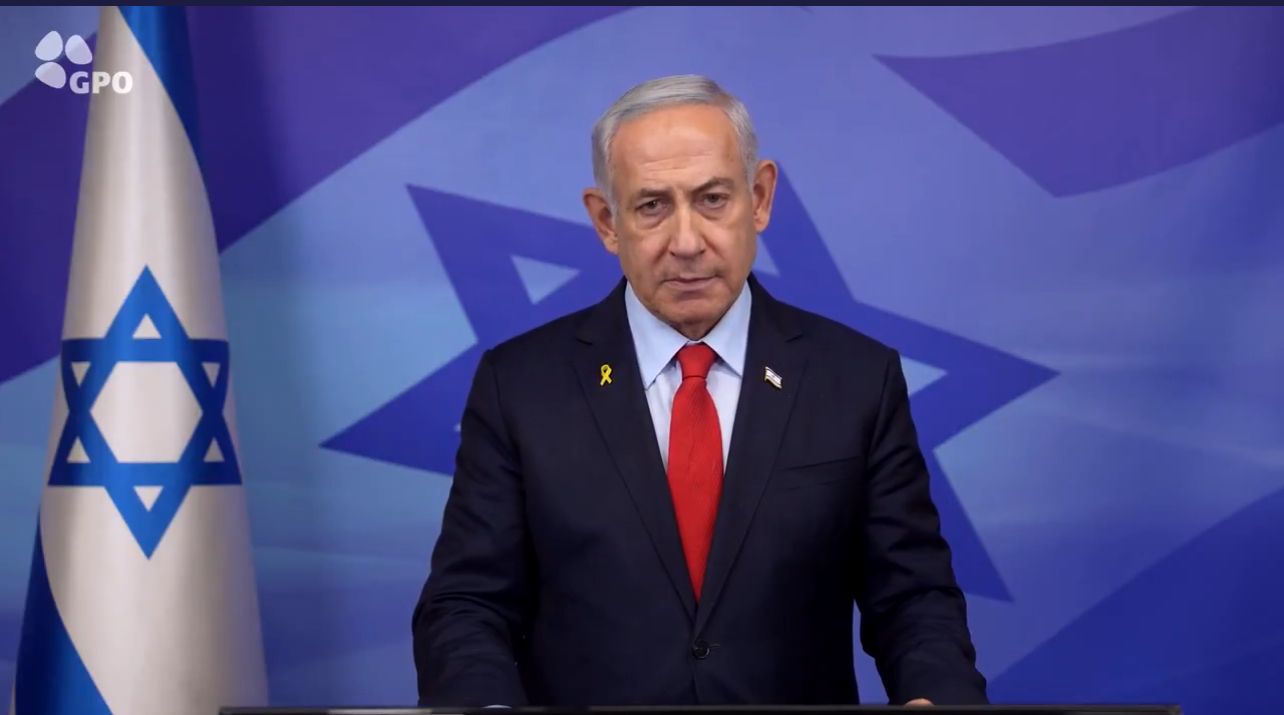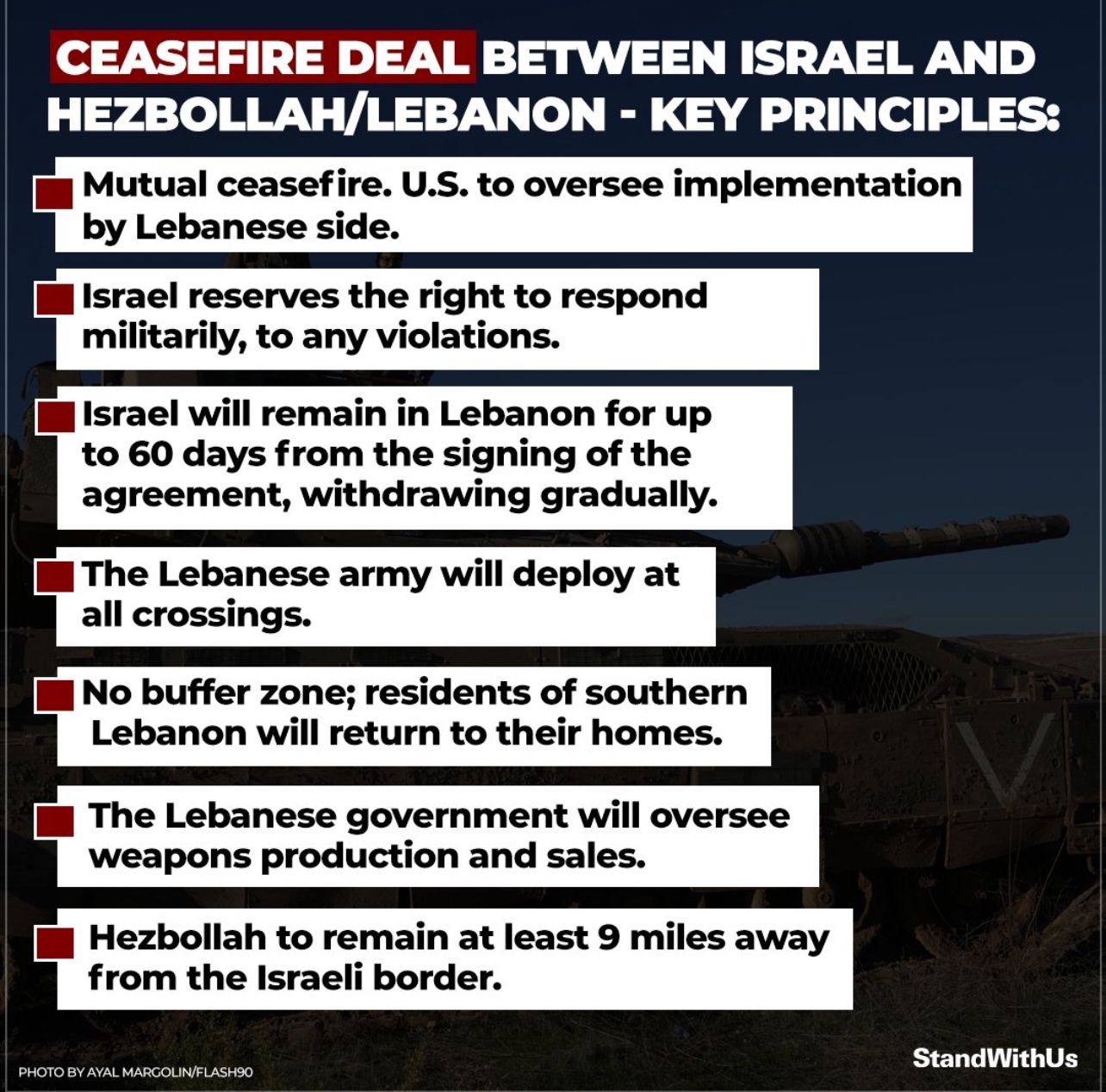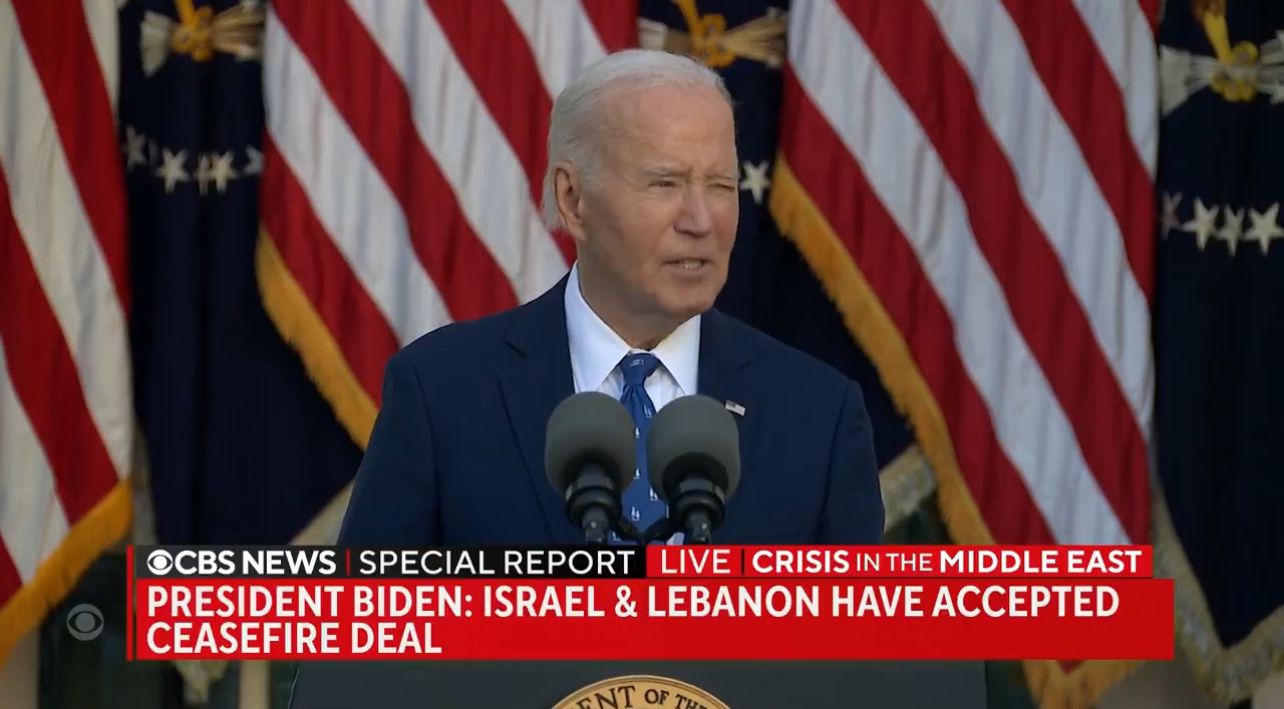WATCH: CEASEFIRE DEAL – Has Netanyahu made shrewd move or been forced into ‘premature surrender’? Here’s what Evangelicals need to know

DENVER, COLORADO — No sooner did Israeli Prime Minister Benjamin “Bibi” Netanyahu announce that he has accepted a temporary ceasefire with Hezbollah negotiated by the Americans and the French than an intense debate began raging.

Has Netanyahu made a shrewd move that locks in Israeli military successes against the Shia terror group and gives Israeli forces a chance to rest, regroup, and resupply?
Or did U.S. President Joe Biden pressure Bibi into a deal that will allow Hezbollah to re-arm and launch fresh and deadly attacks on Israel soon?
The Israeli Security Cabinet is overwhelmingly backing Netanyahu.
It voted 10 to 1 in favor of accepting the terms of the temporary ceasefire, which will go into effect at 10 a.m. local time on Wednesday.
In this video that I shot just after Netanyahu’s live televised address to the nation, I explain the prime minister’s rationale for accepting a 60-day ceasefire right now – the rationale that all but far right-wing National Security Minister Itamar Ben Gvir agreed with.
But I also share what various Israeli and American sources are telling me – some on the record, some on background – as they fiercely reject the deal.
On one side of the debate, a prominent Israeli Evangelical leader – one who has served in the IDF and could not fairly be called a perennial critic of Netanyahu – called the deal a “premature surrender.”
“Our enemies are on their knees – we should finish the work of destroying Hezbollah’s terror infrastructure,” he told me emphatically.
“We should do that until January 20th and then let President Trump take the credit for finishing the war.”
On the other side of the debate, Robert Satloff – a Jewish American and executive director of the Washington Institute for Near East Policy – called the deal a “victory, hands down.”
When I asked him why, Satloff gave me four reasons.
“First, it is a ceasefire, not the formal end to hostilities,” he said. “Let’s see whether Hezbollah triggers another round.”
“Second, Israel has decimated Hezbollah’s military capabilities and its top leadership. It may never recover.”
“Third, Israel has an understanding from the U.S. government to act against any Hezbollah violations – and an American general from Central Command will monitor this.”
“Fourth, Israel has done a great job of separating Hezbollah from the broader Lebanese society – to the extent that many in Lebanon blame Hezbollah for the disaster that has befallen them.“

Satloff believes a temporary ceasefire could help galvanize Lebanese citizens to harden their opposition to Hezbollah and strengthen their desire for peace with Israel.
“Overall, Israel smashed an enemy and restored deterrence,”
Satloff told me.
“Put this all in the context of taking out two major Iran proxies – Hezbollah and Hamas – plus successful Israeli attacks on Iran itself.”
A former senior advisor to Netanyahu told me, “I support the deal.”
He conceded that it is “hardly perfect” but quickly added that it is “better than the alternatives.”
On the other hand, an Israeli opposition figure, who asked not to be named so he could speak freely to me, stated, “We’re against a ceasefire deal at this time.”
“Military achievements haven’t been exhausted,” he added. “Hezbollah is still on its feet and operating.”
He called the ceasefire “an unwarranted stop in fighting when the IDF clearly has the upper hand.”
That said, he added that Netanyahu “has certain valid claims,” such as claiming the Biden administration may be threatening Netanyahu not to veto upcoming anti-Israel resolutions in the UN Security Council.
Richard Goldberg, senior advisor with the Foundation for Defense of Democracies, has some reservations about the deal but overall believes Netanyahu is operating from a position of strength.
“There are many expressing worry and criticisms of the reported details of the Israel-Hezbollah ceasefire agreement,” Goldberg noted. “I share some of them.”
However, he added that “if the U.S. and Israel work together now to focus on the source of all Middle East instability and the shared existential threat – the Islamic Republic of Iran – we can ameliorate many of those concerns.”
Goldberg also said that “the U.S. position should also be clear going forward beyond January 20: Israel has our full support to engage any terror threat in Lebanon it deems a threat to its security. We will also need to use our leverage over Lebanon in ways we never have.”

Goldberg blasted Biden, Secretary of State Antony Blinken and Middle East Special Envoy Amos Hochstein who for months “have tried to force Israel to surrender on all fronts.”
“What a disaster that would have been” if Netanyahu had succumbed to their pressure.
“Just as they tried to stop Israel from going into Rafah, which was later proven to be a strategic imperative, they must live with knowing they tried to stop Israel from destroying the massive terror infrastructure along Israel's border with Lebanon that the IDF has now exposed and destroyed,” Goldberg wrote on 𝕏.
Biden and his team also tried to prevent Israel from assassinating Hezbollah leader Sheikh Hassan Nasrallah and the terror group’s senior leadership.
“It's amazing that these men have learned absolutely nothing. They pressure Israel to make concessions even today, as Hezbollah and Iran are the weakened parties suing for peace, clearly also afraid of Donald Trump becoming president,” Goldberg stated.
“But the terms of the ceasefire will demonstrate that it's Iran and Hezbollah breaking all of their own previously established conditions for a ceasefire, not Israel.
“If we now surge pressure on Qatar, Turkey, Egypt, Lebanon, in addition to Iran, alongside a surge in Gulf Arab support for post-Hamas Gaza planning, securing the release of hostages – including seven American citizens – may yet be achievable.”
“Maximum pressure on Iran must return,” Goldberg insisted. “Peace through strength is the path ahead.”

Joel C. Rosenberg is the editor-in-chief of ALL ISRAEL NEWS and ALL ARAB NEWS and the President and CEO of Near East Media. A New York Times best-selling author, Middle East analyst, and Evangelical leader, he lives in Jerusalem with his wife and sons.













